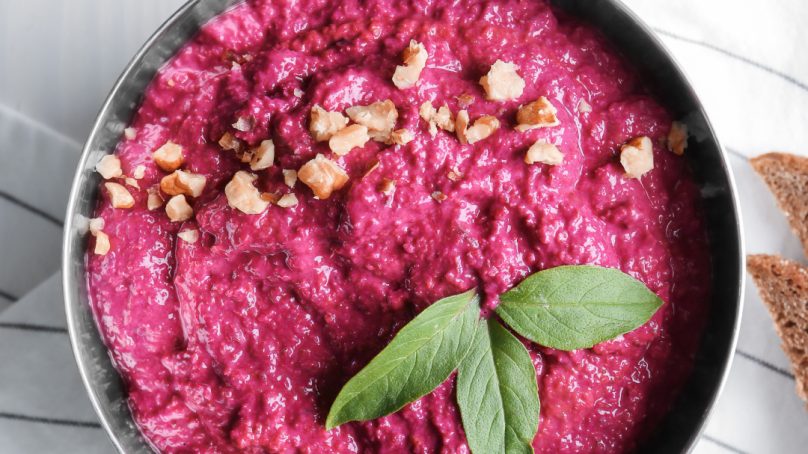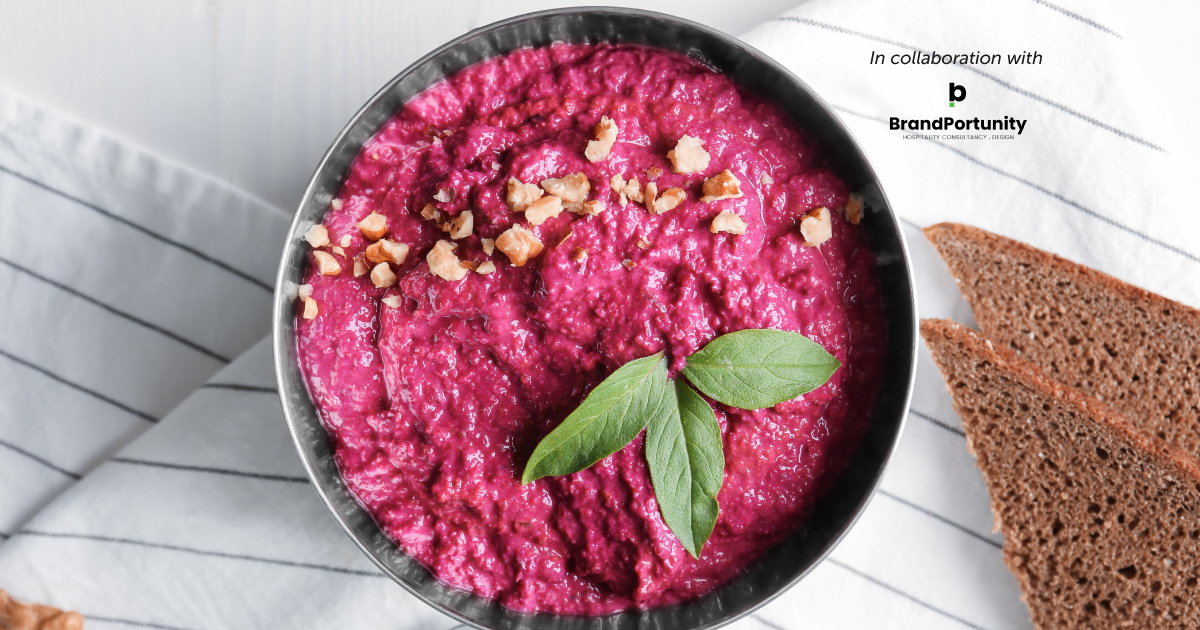

We should be in no doubt that wellness has become a lifestyle, not just a goal. And as part of this worldwide trend, the hospitality industry is experiencing a revolution rooted in health-focused innovation. The explosive rise of functional foods and beverages, in particular, is reshaping consumer expectations. These key products are proving to be major disruptors, redefining business models across restaurants, cafes, hotels and retail F&B.
This was the central theme of a compelling panel debate I attended recently titled ‘Ingredients to Success.’ At this insightful event, industry leaders unpacked the elements driving this seismic shift which is rapidly gaining pace. From entrepreneurs and nutritionists to chefs, brand strategists and expert advisors, the panel conveyed a clear message: the future of food is functional. Businesses that understand this will lead the next wave of hospitality excellence.
A new core for culinary strategy
Functional foods provide additional health benefits beyond basic nutrition. Think of ingredients such as probiotics for gut health, for example. Others range from nootropics for mental clarity and adaptogens for stress relief to superfoods that boost immunity. Consumers are increasingly reaching for products that offer tangible outcomes. They want more energy, better digestion, improved sleep or enhanced mood.
And demand is no longer niche. Reports show that functional food and beverage sales are growing at a compound annual rate of 8-10 percent. The market is expected to surpass USD 300 billion globally by 2026. Hospitality operators who embed functionality into their offering are not just keeping up. They are positioning themselves for long-term success.
Crafting a winning functional brand
The panel broke down what it takes to build a successful functional food brand. They concluded that four key elements are required for success in today’s market.
Consumer insight: brands must begin with a deep understanding of their target audience. Are they health-conscious millennials? Are they working professionals with high stress? Are they fitness-focused families? This clarity informs every decision. It shapes product formulation, menu design and brand messaging.
Ingredient integrity: quality matters more than ever. Consumers are savvy and skeptical. They expect clean labels, sustainable sourcing and scientific validation. Brands must be transparent and back their claims with credible data. Otherwise, they risk being seen as opportunistic rather than authentic.
Innovative formats: flexibility is key when creating products for modern living. Whether it’s on-the-go protein balls, wellness elixirs, functional lattes or adaptogen-infused desserts, the format should match today’s lifestyles. These are fast-paced and wellness-driven. Hospitality brands that diversify their delivery formats while maintaining consistency are best positioned to scale.
Education through experience: creating awareness and engagement is crucial for positive long-term outcomes. Panelists recommended experiential marketing, in-store tastings and storytelling. These narratives should spotlight ingredient benefits and origin stories. Crucially, staff must be able to communicate stories naturally, helping to create memorable experiences that go beyond the plate.
Elevating menus
Functional foods are no longer the domain of health-food stores or wellness cafes. Upscale restaurants, boutique hotels and international F&B chains are all finding ways to integrate them into their menus. Think beetroot hummus for circulatory health, for example, or mushroom broth for immunity. And then there’s cacao-nib granola for antioxidants. The list is both exciting and extensive.
Michelin-starred chefs are also embracing this shift, introducing tasting menus that blend gastronomic delight with nutritional purpose. The key is integration, not replacement. Functional items should complement the culinary identity of the venue and enhance the overall wellness value proposition. Importantly, this approach allows establishments to maintain their brand identity while embracing wellness trends.
Wellness for sustained success
Panelists agreed that brands treating wellness as a core value rather than a trend are better positioned for results. Businesses that integrate wellness into their ethos are setting the scene for sustainable growth and long-term impact. The opportunities to share messages are broad and varied, ranging from sourcing and menu design to staff wellness programs and community engagement.
This purpose-driven approach is especially attractive to Gen Z and millennial consumers, who are more likely to support and reward brands that align with their values. Think climate-friendly packaging and plant-based innovations, for example. This demographic shift represents a significant opportunity for forward-thinking hospitality businesses.
Consumers are increasingly reaching for products that offer tangible outcomes. They want more energy, better digestion, improved sleep or enhanced mood.
Cost, compliance and clarity
The opportunities are abundant; however, so are the challenges. Functional ingredients often carry a higher cost and this can impact pricing strategies. Additionally, regulatory compliance can be complex, especially when it comes to health-related claims. Education also remains a hurdle, in part because so many consumers remain unfamiliar with terms like adaptogens or prebiotics. Operators will need to master the delicate art of simplifying a message without dumbing it down to drive growth.
Collaborative opportunities
A recurring theme in the panel discussion was the value of partnerships. Functional food brands are joining forces with fitness centers, wellness resorts, nutritionists and tech platforms, among others. These exciting collaborations have many advantages, offering opportunities for operators to broaden their reach and reinforce their market position. Cross-industry synergy can also help functional F&B players enhance their credibility. Examples include co-branded wellness retreats and smoothie collaborations with wellness influencers. We are also seeing the emergence of hotel minibars stocked with locally sourced functional snacks. Admittedly, the fusion of wellness and hospitality is still in its infancy. However, early adopters are giving themselves a competitive advantage.
Empowering teams
Behind every successful wellness-focused concept is a team that understands the brand’s purpose. The panel stressed the importance of training chefs, baristas, servers and marketing teams to become ambassadors of wellness. When team members grasp the functional value of ingredients and the intention behind each offering, they are better positioned to create authentic guest interactions and reinforce brand credibility. As the panel noted, today’s customers aren’t simply consuming products, they’re engaging with a philosophy and experimenting with trends. Consequently, empowering teams becomes crucial for delivering on the wellness promise and achieving targeted results.
As the hospitality industry continues to embrace wellness, functional foods and beverages offer huge potential, with the ability to deliver both impact and profit. For brands willing to invest in quality, innovation and education, the payoff is substantial. Functional F&B isn’t just about adding turmeric to a latte or protein to a pancake. It’s about redefining the role of food in our lives. As the panel noted, the most effective recipes are the ones that simultaneously nourish body, mind and brand.

Managing Director of BRANDPORTUNITY









